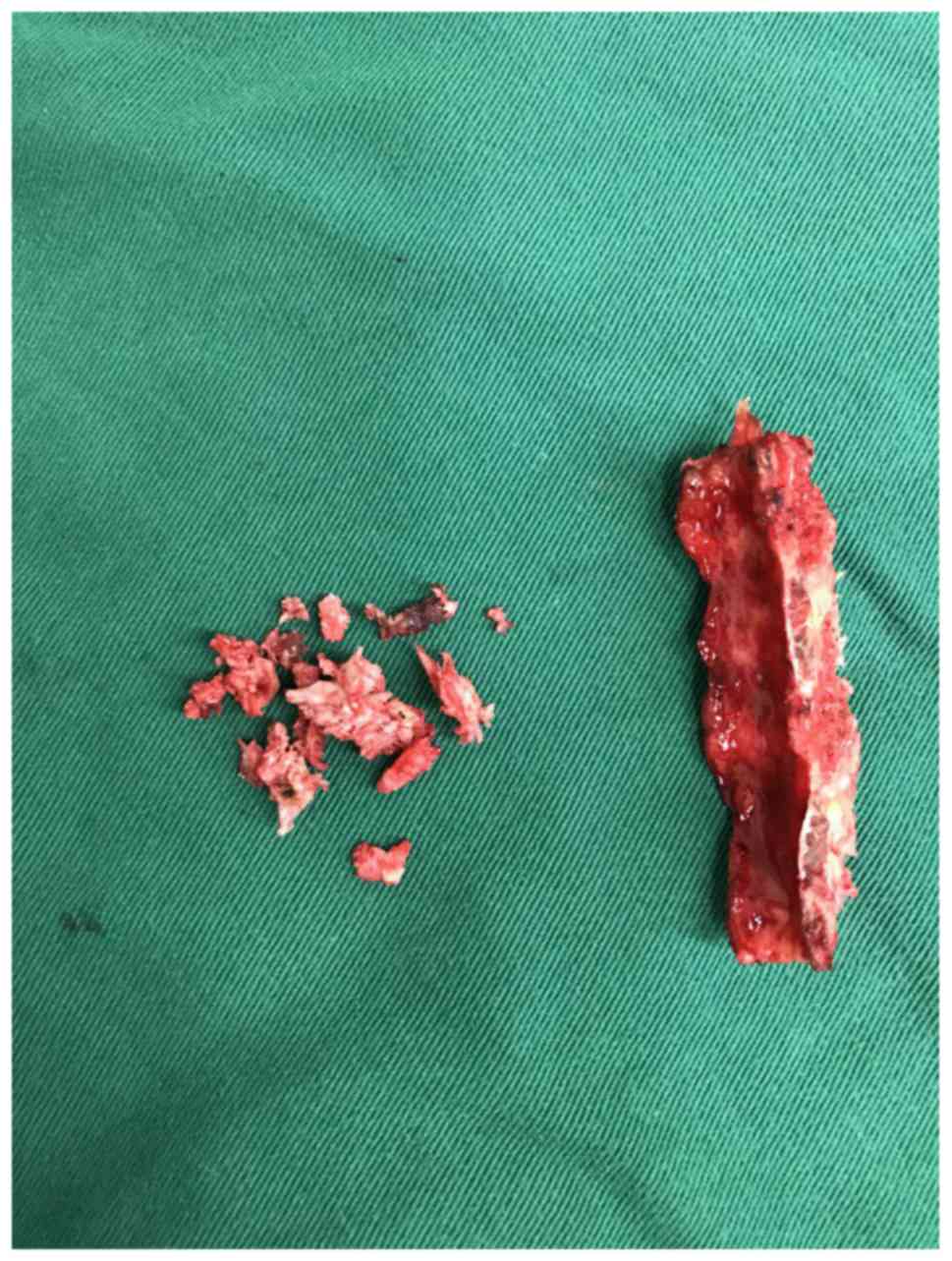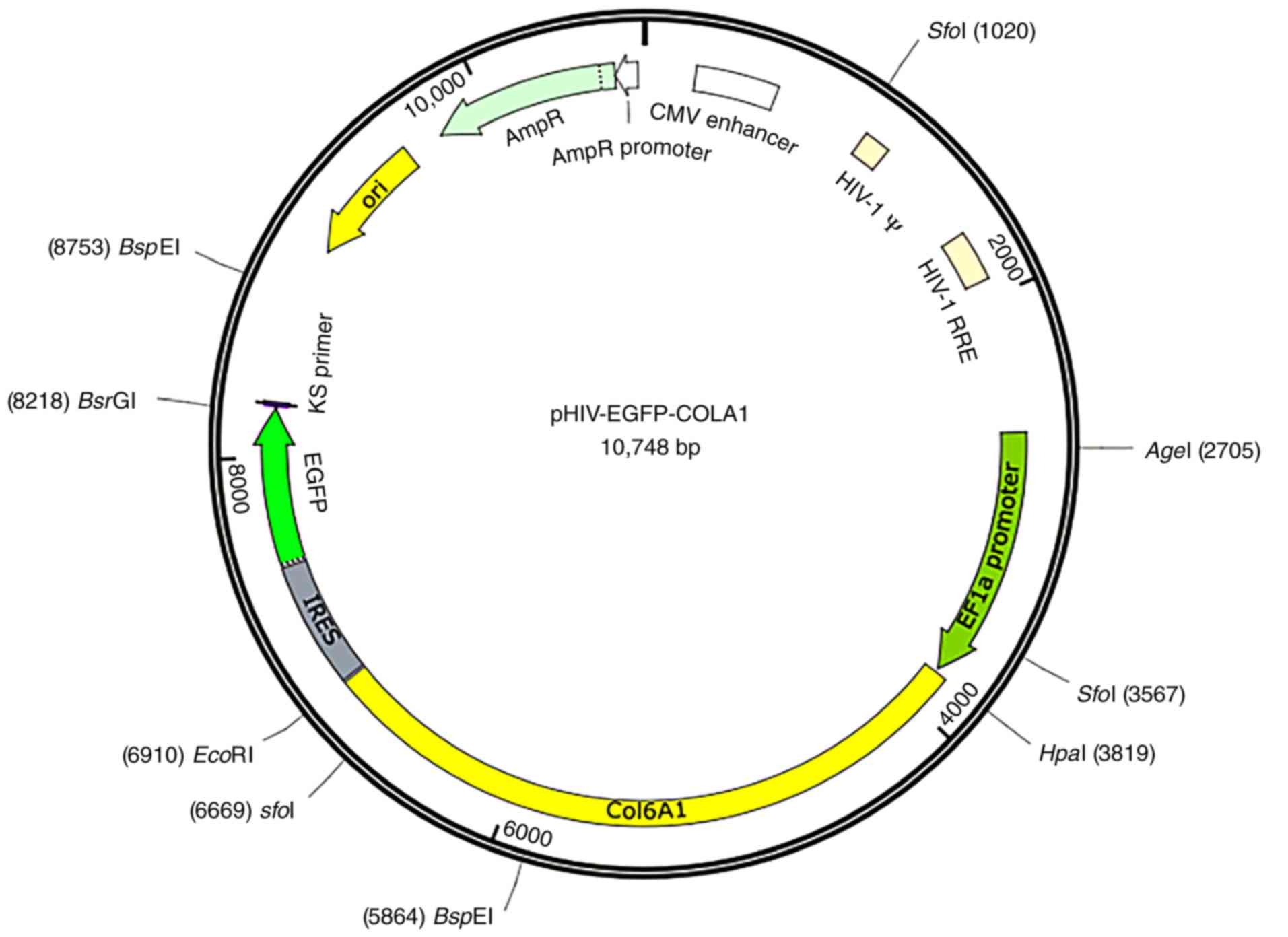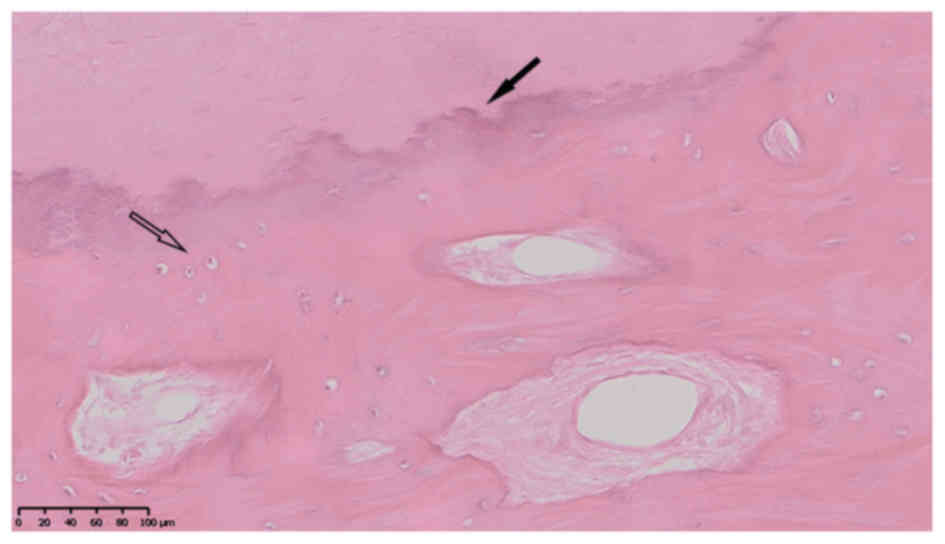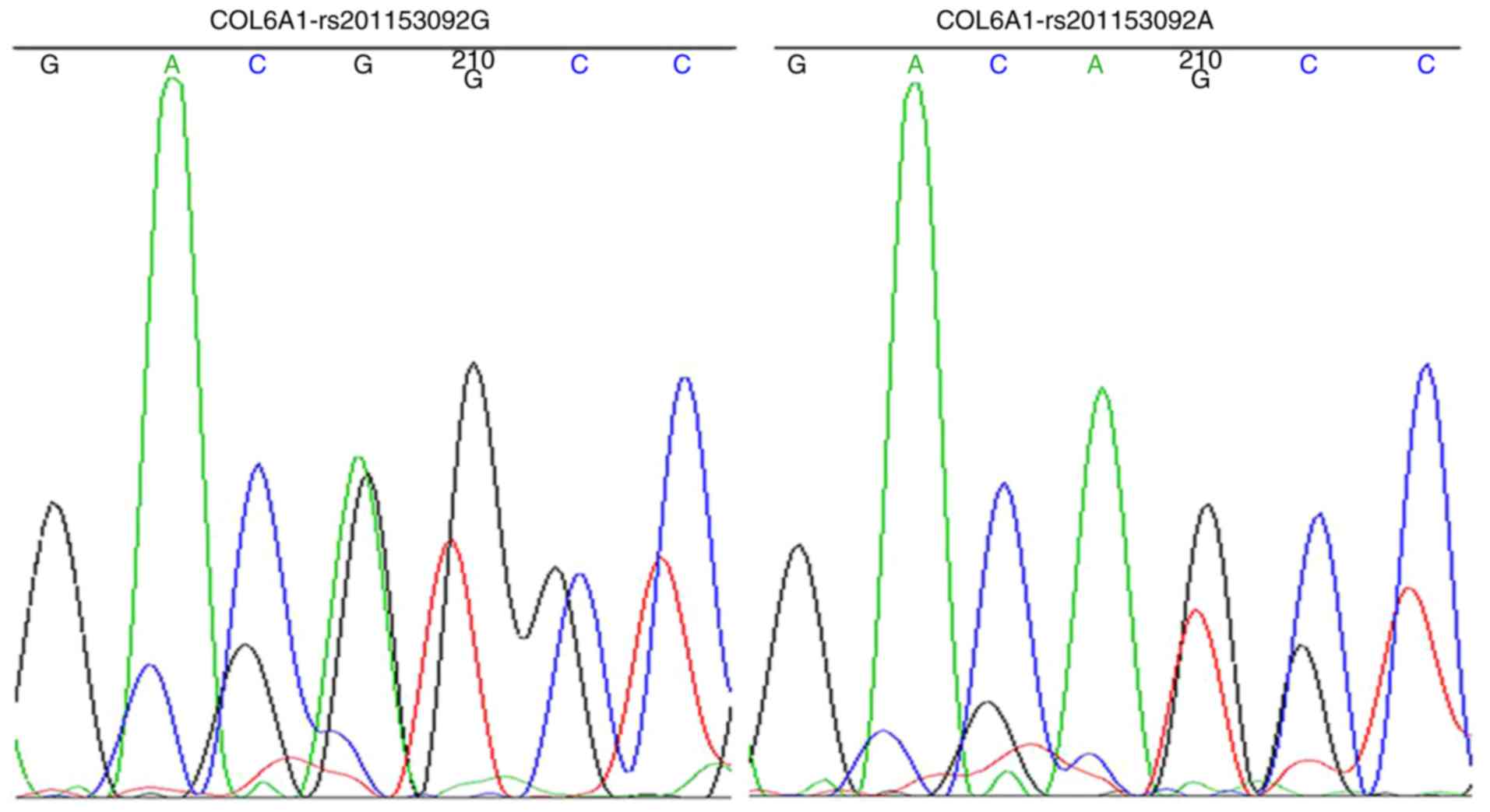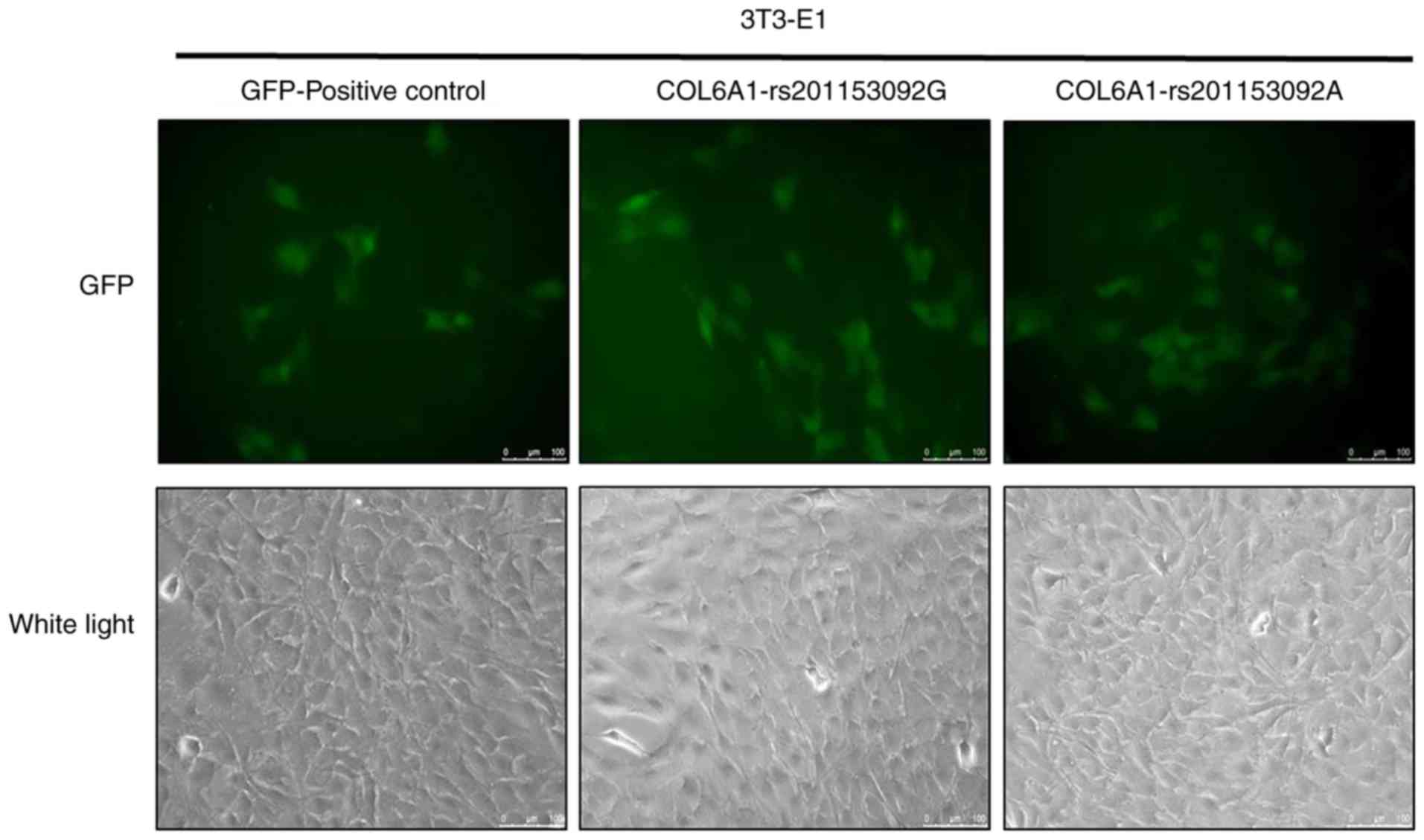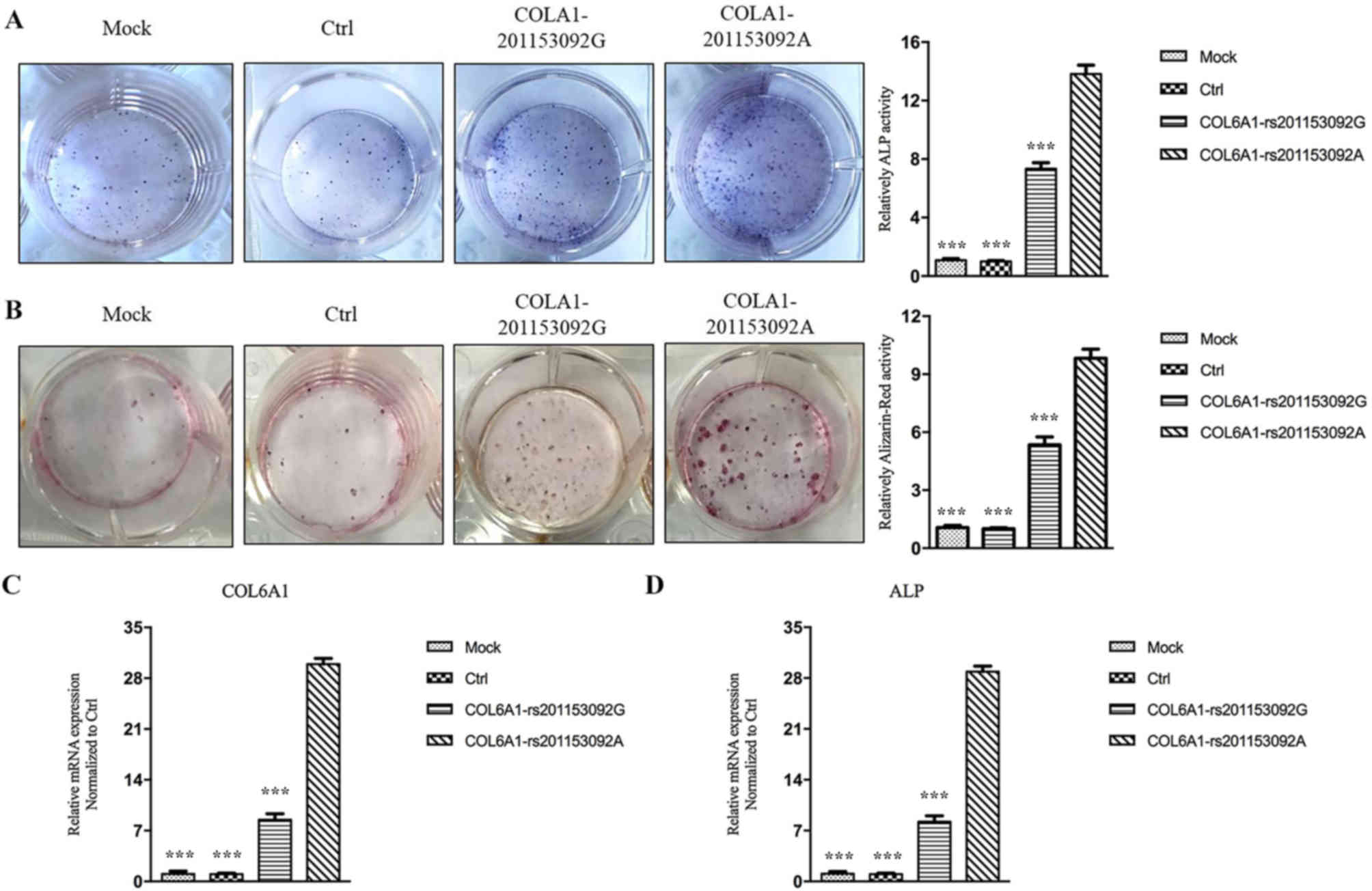|
1
|
Koda M, Furuya T, Okawa A, Inada T, Kamiya
K, Ota M, Maki S, Takahashi K, Yamazaki M, Aramomi M, et al: Mid-
to long-term outcomes of posterior decompression with instrumented
fusion for thoracic ossification of the posterior longitudinal
ligament. J Clin Neurosci. 27:87–90. 2016. View Article : Google Scholar : PubMed/NCBI
|
|
2
|
Hu P, Yu M, Liu X, Liu Z and Jiang L: A
circumferential decompression-based surgical strategy for
multilevel ossification of thoracic posterior longitudinal
ligament. Spine J. 15:2484–2492. 2015. View Article : Google Scholar : PubMed/NCBI
|
|
3
|
Kong W, Ao J, Cao G, Xia T, Liu L and Liao
W: Local spinal cord decompression through a full endoscopic
percutaneous transcorporeal approach for cervicothoracic
ossification of the posterior longitudinal ligament at the T1-T2
level. World Neurosurg. 112:287–293. 2018. View Article : Google Scholar : PubMed/NCBI
|
|
4
|
Xu N, Yu M, Liu X, Sun C, Chen Z and Liu
Z: A systematic review of complications in thoracic spine surgery
for ossification of the posterior longitudinal ligament. Eur Spine
J. 26:1803–1809. 2017. View Article : Google Scholar : PubMed/NCBI
|
|
5
|
Xu ZW, Hu YC, Sun CG, Shang XP, Lun DX, Li
F, Ji XB, Liu DY, Chen NW and Zhuang QS: Treatment for thoracic
ossification of posterior longitudinal ligament with posterior
circumferential decompression. Orthop Surg. 9:206–214. 2017.
View Article : Google Scholar : PubMed/NCBI
|
|
6
|
Yu JW, Yun SO, Hsieh CS and Lee SH:
Minimally invasive anterior decompression technique without
instrumented fusion for huge ossification of the posterior
longitudinal ligament in the thoracic spine: Technical note and
literature review. J Korean Neurosurg Soc. 60:597–603. 2017.
View Article : Google Scholar : PubMed/NCBI
|
|
7
|
Yang B, Wang Y, He X and Li H: Treatment
for thoracic ossification of posterior longitudinal ligament with
posterior circumferential decompression: Complications and
managements. J Orthop Surg Res. 11:1532016. View Article : Google Scholar : PubMed/NCBI
|
|
8
|
Onishi E, Yasuda T, Yamamoto H, Iwaki K
and Ota S: Outcomes of surgical treatment for thoracic myelopathy:
A Single-institutional study of 73 patients. Spine (Phila Pa 1976).
41:E1356–E1363. 2016. View Article : Google Scholar : PubMed/NCBI
|
|
9
|
Imagama S, Ando K, Takeuchi K, Kato S,
Murakami H, Aizawa T, Ozawa H, Hasegawa T, Matsuyama Y, Koda M, et
al: Perioperative complications after surgery for thoracic
ossification of posterior longitudinal ligament-nationwide
multicenter prospective study. Spine (Phila Pa 1976).
43:E1389–E1397. 2018. View Article : Google Scholar : PubMed/NCBI
|
|
10
|
Xu C, Chen Y, Zhang H, Chen Y, Shen X, Shi
C, Liu Y and Yuan W: Integrated microRNA-mRNA analyses reveal OPLL
specific microRNA regulatory network using high-throughput
sequencing. Sci Rep. 6:215802016. View Article : Google Scholar : PubMed/NCBI
|
|
11
|
Ikegawa S: Genetics of ossification of the
posterior longitudinal ligament of the spine: A Mini Review. J Bone
Meta. 21:127–132. 2014. View Article : Google Scholar
|
|
12
|
Ikegawa S: Genomic study of ossification
of the posterior longitudinal ligament of the spine. Proc Jpn Acad
Ser B Phys Biol Sci. 90:405–412. 2014. View Article : Google Scholar : PubMed/NCBI
|
|
13
|
Yang H, Shi L, Shi G, Guo Y, Chen D, Chen
D and Shi J: Connexin 43 affects osteogenic differentiation of the
posterior longitudinal ligament cells via regulation of ERK
activity by stabilizing Runx2 in ossification. Cell Physiol
Biochem. 38:237–247. 2016. View Article : Google Scholar : PubMed/NCBI
|
|
14
|
Nakajima M, Kou I, Ohashi H; Genetic Study
Group of the Investigation Committee on the Ossification of Spinal
Ligaments, ; Ikegawa S: Identification and functional
characterization of RSPO2 as a susceptibility gene for ossification
of the posterior longitudinal ligament of the spine. Am J Hum
Genet. 99:202–207. 2016. View Article : Google Scholar : PubMed/NCBI
|
|
15
|
Wei W, He HL, Chen CY, Zhao Y, Jiang HL,
Liu WT, Du ZF, Chen XL, Shi SY and Zhang XN: Whole exome sequencing
implicates PTCH1 and COL17A1 genes in ossification of the posterior
longitudinal ligament of the cervical spine in Chinese patients.
Genet Mol Res. 13:1794–1804. 2014. View Article : Google Scholar : PubMed/NCBI
|
|
16
|
Nakajima M, Takahashi A, Tsuji T, Karasugi
T, Baba H, Uchida K, Kawabata S, Okawa A, Shindo S, Takeuchi K,
Taniguchi Y, et al: A genome-wide association study identifies
susceptibility loci for ossification of the posterior longitudinal
ligament of the spine. Nat Genet. 46:1012–1016. 2014. View Article : Google Scholar : PubMed/NCBI
|
|
17
|
Guo Q, Lv SZ, Wu SW, Tian X and Li ZY:
Association between single nucleotide polymorphism of IL15RA gene
with susceptibility to ossification of the posterior longitudinal
ligament of the spine. J Orthop Surg Res. 9:1032014. View Article : Google Scholar : PubMed/NCBI
|
|
18
|
He Z, Zhu H, Ding L, Xiao H, Chen D and
Xue F: Association of NPP1 polymorphism with postoperative
progression of ossification of the posterior longitudinal ligament
in Chinese patients. Genet Mol Res. 12:4648–4655. 2013. View Article : Google Scholar : PubMed/NCBI
|
|
19
|
Ren Y, Feng J, Liu ZZ, Wan H, Li JH and
Lin X: A new haplotype in BMP4 implicated in ossification of the
posterior longitudinal ligament (OPLL) in a Chinese population. J
Orthop Res. 30:748–756. 2012. View Article : Google Scholar : PubMed/NCBI
|
|
20
|
Ren Y, Liu ZZ, Feng J, Wan H, Li JH, Wang
H and Lin X: Association of a BMP9 haplotype with ossification of
the posterior longitudinal ligament (OPLL) in a Chinese population.
PLoS One. 7:e405872012. View Article : Google Scholar : PubMed/NCBI
|
|
21
|
Chung WS, Nam DH, Jo DJ and Lee JH:
Association of toll-like receptor 5 gene polymorphism with
susceptibility to ossification of the posterior longitudinal
ligament of the spine in Korean population. J Korean Neurosurg Soc.
49:8–12. 2011. View Article : Google Scholar : PubMed/NCBI
|
|
22
|
Liu Y, Zhao Y, Chen Y, Shi G and Yuan W:
RUNX2 polymorphisms associated with OPLL and OLF in the Han
population. Clin Orthop Relat Res. 468:3333–3341. 2010. View Article : Google Scholar : PubMed/NCBI
|
|
23
|
Bao M, Mao F, Zhao Z, Ma G, Xu G, Xu W,
Chen H and Zhu M: COL6A1 mutation leading to Bethlem myopathy with
recurrent hematuria: A case report. BMC Neurol. 19:322019.
View Article : Google Scholar : PubMed/NCBI
|
|
24
|
Chen X, Guo J, Cai T, Zhang F, Pan S,
Zhang L, Wang S, Zhou F, Diao Y, Zhao Y, et al: Targeted
next-generation sequencing reveals multiple deleterious variants in
OPLL-associated genes. Sci Rep. 6:269622016. View Article : Google Scholar : PubMed/NCBI
|
|
25
|
Kong Q, Ma X, Li F, Guo Z, Qi Q, Li W,
Yuan H, Wang Z and Chen Z: COL6A1 polymorphisms associated with
ossification of the ligamentum flavum and ossification of the
posterior longitudinal ligament. Spine (Phila Pa 1976).
32:2834–2838. 2007. View Article : Google Scholar : PubMed/NCBI
|
|
26
|
Wang P and Liu X, Zhu B, Ma Y, Yong L,
Teng Z, Wang Y, Liang C, He G and Liu X: Identification of
susceptibility loci for thoracic ossification of the posterior
longitudinal ligament by whole-genome sequencing. Mol Med Rep.
17:2557–2564. 2018.PubMed/NCBI
|
|
27
|
Wang P and Liu X, Zhu B, Ma Y, Yong L,
Teng Z, Liang C, He G and Liu X: Association of IL17RC and COL6A1
genetic polymorphisms with susceptibility to ossification of the
thoracic posterior longitudinal ligament in Chinese patients. J
Orthop Surg Res. 13:1092018. View Article : Google Scholar : PubMed/NCBI
|
|
28
|
Tanaka T, Ikari K, Furushima K, Okada A,
Tanaka H, Furukawa K, Yoshida K, Ikeda T, Ikegawa S, Hunt SC, et
al: Genomewide linkage and linkage disequilibrium analyses identify
COL6A1, on chromosome 21, as the locus for ossification of the
posterior longitudinal ligament of the spine. Am J Hum Genet.
73:812–822. 2003. View
Article : Google Scholar : PubMed/NCBI
|
|
29
|
Wang P, Liu X, Kong C, Liu X, Teng Z, Ma
Y, Yong L, Liang C, He G and Lu S: Potential role of the IL17RC
gene in the thoracic ossification of the posterior longitudinal
ligament. Int J Mol Med. 43:2005–2014. 2019.PubMed/NCBI
|
|
30
|
Livak KJ and Schmittgen TD: Analysis of
relative gene expression data using real-time quantitative PCR and
the 2(-Delta Delta C(T)) method. Methods. 25:402–408. 2001.
View Article : Google Scholar : PubMed/NCBI
|
|
31
|
Capitanio D, Moriggi M, De Palma S,
Bizzotto D, Molon S, Torretta E, Fania C, Bonaldo P, Gelfi C and
Braghetta P: Collagen VI Null mice as a model for early onset
muscle decline in aging. Front Mol Neurosci. 10:3372017. View Article : Google Scholar : PubMed/NCBI
|
|
32
|
Izu Y, Ezura Y, Koch M, Birk DE and Noda
M: Collagens VI and XII form complexes mediating osteoblast
interactions during osteogenesis. Cell Tissue Res. 364:623–635.
2016. View Article : Google Scholar : PubMed/NCBI
|
|
33
|
Cheng IH, Lin YC, Hwang E, Huang HT, Chang
WH, Liu YL and Chao CY: Collagen VI protects against neuronal
apoptosis elicited by ultraviolet irradiation via an
Akt/Phosphatidylinositol 3-kinase signaling pathway. Neuroscience.
183:178–188. 2011. View Article : Google Scholar : PubMed/NCBI
|















